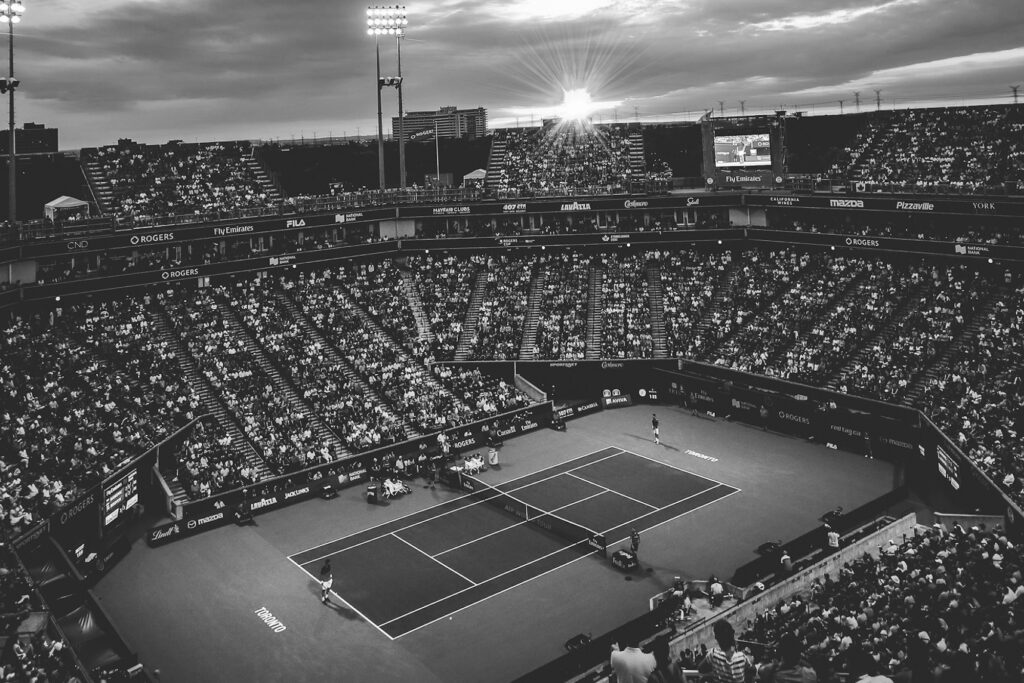The Mental Side of Tennis: Perfect Imperfection?!
- neuro11
- Sports

”In tennis, perfection is impossible. In the 1,526 singles matches I played in my career, I won almost 80% of those matches. Now, I have a question for you. What percentage of points do you think I won in those matches?“
- Roger Federer
For individuals not working in professional tennis, the answer might be a complete surprise: Just 54%. Barely more than half of the points to be played for. So how did Roger Federer manage to become one of the greatest tennis players of all time? It is very unlikely that winning 80% of his matches came from barely surpassing chance on individual points.
When the point is done, it’s done.
In rarely any other single-player sport you play as many single points as you do over the course of a tennis match. From a neuropsychological point of view, this means every point can potentially present itself as a source of joy or frustration. The ability to accept setbacks, to move past mistakes, and to let go of points that feel like they “should have been won” is considered by some as one of the defining traits that separates the best tennis players from great ones. As Novak Djokovic, the most accomplished Grand Slam player of all time once said: “The difference, I guess, between the guys who are able to be the biggest champions, and the ones that are struggling to get to the highest level is the ability to not stay in those emotions for too long. So for me, it’s really relatively short. So as soon as I experience it, I acknowledge it. I maybe, you know, burst. I scream on the court, whatever happens. But then I’m able to bounce back and reset“ [2].
mental toughness and mental fatigue.
In psychology, the ability to manage one’s thoughts, emotions, and behaviors in the face of adversity is known as “mental toughness” [3]. Research in tennis players has shown that mental toughness is positively linked to resilience and negatively linked to stress [4]. It is important here to point out that the oftentimes labeled “negative emotions” such as anger can be the fuel for better performances, but considering that a Men’s tennis match typically lasts for 2 hours and 45 minutes and a Women’s tennis match for 1 hour and 20 minutes [5], it is important to remember that these emotions can use up a lot of mental energy very quickly, if not channeled the right way. In research, the impairment due to mental fatigue has been linked to significantly reduced accuracy in second serves [6]. Every player is of course different, but for some individuals it is likely that maintaining the focus on being in the moment, rather than fixating only negative emotions can help to conserve energy and enhance performance.
Building mental toughness.
Over the years, numerous psychological models and methods have been developed to help athletes regulate their responses to stress, maintain focus, and sustain composure under pressure – even on days when they feel broken, anxious or tired [7,8]. We at neuro11 are confident that we can elevate tennis performances even further using neuropsychological analysis on and off the court. As part of this, we focus on serves and returns. But why? It is not a coincidence that most of the best ranked players are also within the top 10 of the best servers and returners rankings [9], since those are considered the most important shots in a rally. Research supports this notion, demonstrating that even a freshly learned routine can help athletes prevent a drop in performance in high-pressure situations [10].
Our advice: In high-pressure moments, focus on the moment rather than getting lost in the “what-ifs.” This trains you to move forward and not be too hard on yourself because of past mistakes. This ability can conserve your mental energy and ideally improve your performance when it matters most.
#trainyourbrain
If this article sparked your interest and you would like to know more about this or other topics, please do not hesitate to contact us via info@neuro11.de. We look forward to hearing from you.
References
[1] Youtube Video Roger Federer: Link
[2] Interview with Novak Djokovic: Link
[3] International Journal of Sport and Exercise Psychology article: Link
[4] Frontiers in Psychology article: Link
[5] Tennis Match statistics: Link
[6] Research Quarterly for Exercise and Sport article: Link
[7] Journal of Social Science Humanities and Literature article: Link
[8] Introduction to the well-established 4C-model: Link
[9] ATP Serves and Return Rankings: Link
[10] Journal of Applied Sport Psychology article: Link
